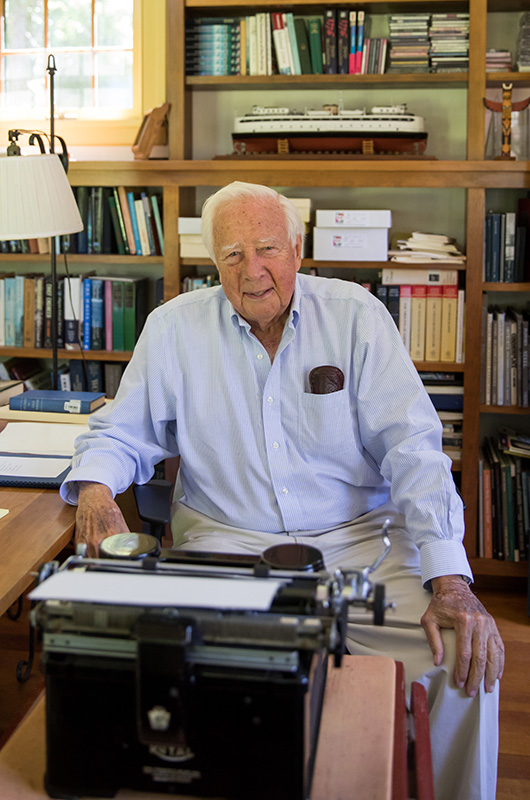By far, David McCullough has had the strongest influence on my writing, reading, and life. His books are not just books; they are glimpses into a world long gone, glimpses that are near impossible to achieve anywhere else other than between the covers of his books. This makes sense when you look at his advice. Speaking about John Adams and writing his biography, he said, “You’ve got to marinate your head in their time and in their culture. You’ve got to become them in an effect.”
Therefore, I was thrilled to find a documentary on him, David McCullough: Painting with Words. Here are some notes.
On the standards he sets for his books, he said:
I’m starving to write a book that might qualify as literature. That’s the aspiration. I don’t want it just to be readable. I don’t want it just to be interesting. I want it to be something that moves the reader, that moves me.
On the one thing you should teach children, he said this:
The great thing about the arts is that you can only learn to do it by doing it. If a child gets that idea, early, that that’s how you learn things, by doing it, that may be the most important thing you can give them. You can’t learn to play the piano by reading a book about how to play the piano. You can’t learn to paint without painting. You have to do it. And in doing it, you suddenly begin to see, “By God I can do this!” And then after awhile “I can not only do this, I’m getting better.
If you were ever confused, McCullough is a writer, not an historian:
I don’t think of myself as an historian in the conventional understanding of the word. I’m a writer, who has chosen other days from our own - other times - as my field, that’s what I want to write about.
Echoing this later, he said, “I love to tell a story. And I particularly love to tell a true story.”
About the misconceptions people have about history, he said:
History is not about dates, and quotes, and obscure provisos; history is about life, about change, about consequences, about cause and effect, it’s about the mystery of human nature, the mystery of time. And it isn’t just about politics and the military and social issues - which is almost always the way it’s taught: it’s about music and poetry and drama and science and medicine and money and love.
In the last year of his life, Ralph Waldo Emerson visited John Adams. Emerson afterward wrote down much of what they discussed. He reports that John Adams said “I would to God there be more ambition in the country…” Then he paused and added, “By that I mean ambition of the lottable kind: to excel.” “Wouldn’t it be wonderful,” McCullough says while telling this story, “If we could reinstate through what we do as parents, grandparents, as teachers, as legislators, that old noble ambition to excel.”
On success and rewards, McCullough echoes something Robert Oppenheimer understood as well: that the work is the reward.
The fact that my books are still in print, I suppose I’m prouder of that than anything else. I’ve had a wonderful life, I’ve had a wonderful time, doing what I do. That’s the reward! The work is the reward, the kick of getting back to that typewriter and digging in for another project. That’s what I love. I won’t possibly live long enough to do all the books I want to writer. I have a list of possible books, I thing there’s 27 ideas on the list, so I guess I’ll just have to keep on working. Happily.
